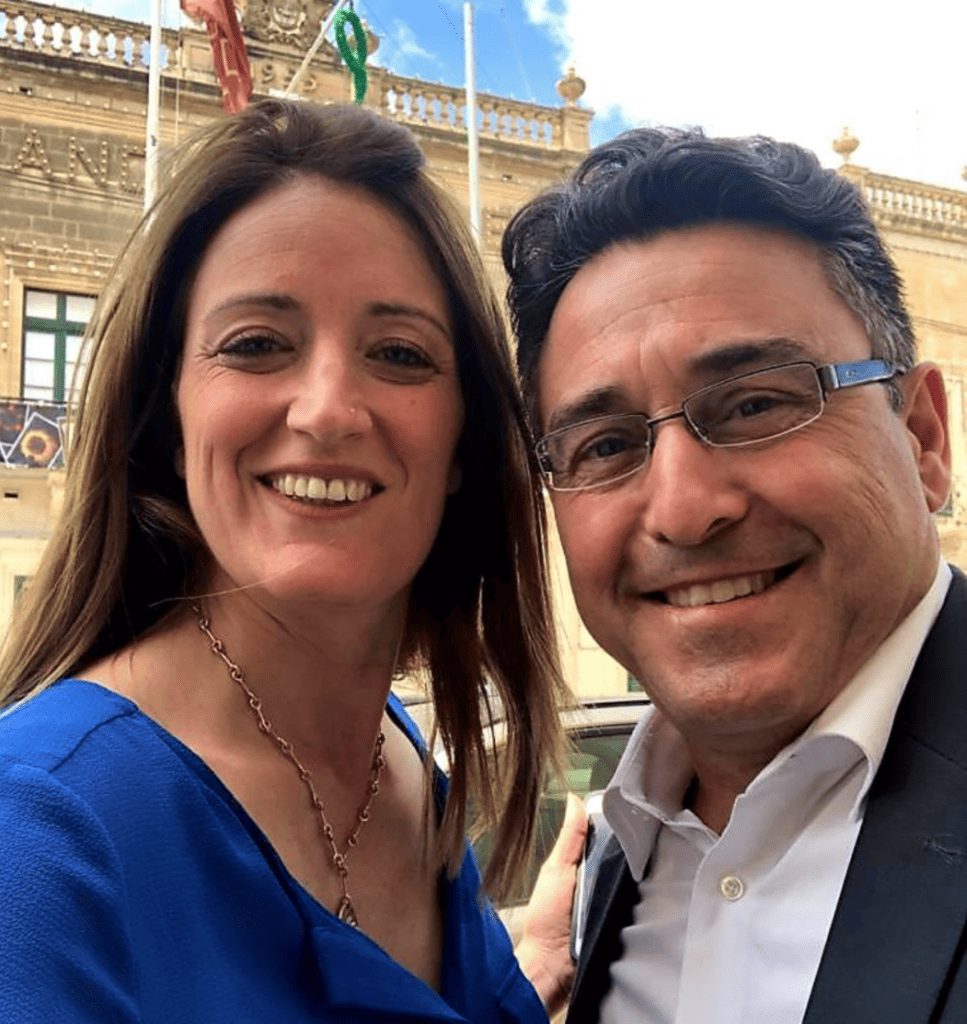
Bernard Grech will have expected yesterday’s newspapers to give more prominence to what was officially the warm-up act on Wednesday night. The PN hasn’t seen Wednesday’s sort of crowd at its Independence Day events for many years. The crowds did not swell because Bernard Grech was giving another speech. Bernard Grech knew that.
Politicians are rarely famous for their humility or for delight in standing in someone else’s shadow. Bernard Grech knew that Roberta Metsola would more than steal the show. She would be the show. He knows that in many people’s mind she’s his obvious successor and at least some of those people are impatient for that transition to occur.
You could read the scene like a palace drama: the rising star dimming the light of the sun, about to take its place. But then we know that if Roberta Metsola has plans to return to Malta, she hasn’t been sharing them. We know that her attention may lie elsewhere for some time longer. Whatever people looking up to her may have been hoping Wednesday night she was clear in what she was asking: she wants support for re-election to the European Parliament of which she’s now president and to which she wants to return. She can’t be accused of ambiguity in that respect.
Perhaps then, the PN is sending a daring message for which it has not yet found the words. Perhaps they’re telling us to stop waiting for a king (or queen) who’ll sweep us off our feet and to think of them instead, as a group of people who can give a contribution in the different roles they would occupy in a PN-led government.
It’s really a return to parliamentary politics which is not supposed to be about a single individual – presidential style – but about a party, a team, with people of different skills complementing each other.
Not all of them would be high-flying geniuses. Not all of them would have the flamboyance and charisma necessary to alone carry a national vote. But some would be vote-magnets, and some would be hard-working drones getting the job done. Some would be sitting in Castille and some in the European Parliament.
The fact is the PN has far from polished its act.
Its Parliamentary Group has a few bright sparks but is mostly silent. Too many of them think that house visits to secure their personal re-election is all they should be doing. Some of them appear to have very little appreciation of politics and what their role in it should amount to. A few of them appear silenced by compromise particularly with their professional careers. There just doesn’t seem to be the commitment that can be expected from a group of people who should have the hunger for power to fulfil whatever mission attracted them to politics.
The PN’s policy-making capability appears to be largely dormant. Ideas are rare, poorly documented, and there is little discernible debate before they emerge only to be forgotten quickly. If someone is working on a plan for the first 100 days of a new PN government, they’re doing so very quietly.
But the PN has strengths, and it was wise to present those strengths front and centre last Wednesday. There are only 2 PN MEPs and one of them is a respected global figure. She may not yet have time to become an MP in Malta’s national parliament and therefore she may not be a minister any time soon. But a government that sits in the same party with a person who enjoys such prestige and influence has a lot to go for it. Even a little of her time, given that she may not be able to give all of it, is an important asset.
The fact is that the PN must do more. When the PN resorted to presidential politics, plastering the faces of Eddie Fenech Adami and Lawrence Gonzi on billboards all over the place, it was because the leader alone could make up for the shortfalls of the rest of the party. Presidentialism was a solution for weaknesses in parliamentary campaigning. In a way it was the easy way out. Not everyone can be like Eddie but having one Eddie made up for that.
Going back to parliamentary politicking to make up for a leader who hasn’t managed to single-handedly charm the nation is the hard way. The party needs to show that it is full of bright minds who can do the job even without the benefit of an inspiring Messiah to speak for them.
When Bernard Grech shares the limelight, it must be with colleagues people want to see and think they could support. They can’t all be like Roberta Metsola. Indeed, her achievement will be exceptional for generations. But that stage on Wednesday needs to carry people whose face makes them obvious ministers for finance, education, economic development, the environment, and all the verticals that are replete with structural problems that need urgent solving.
It’s a long road ahead.